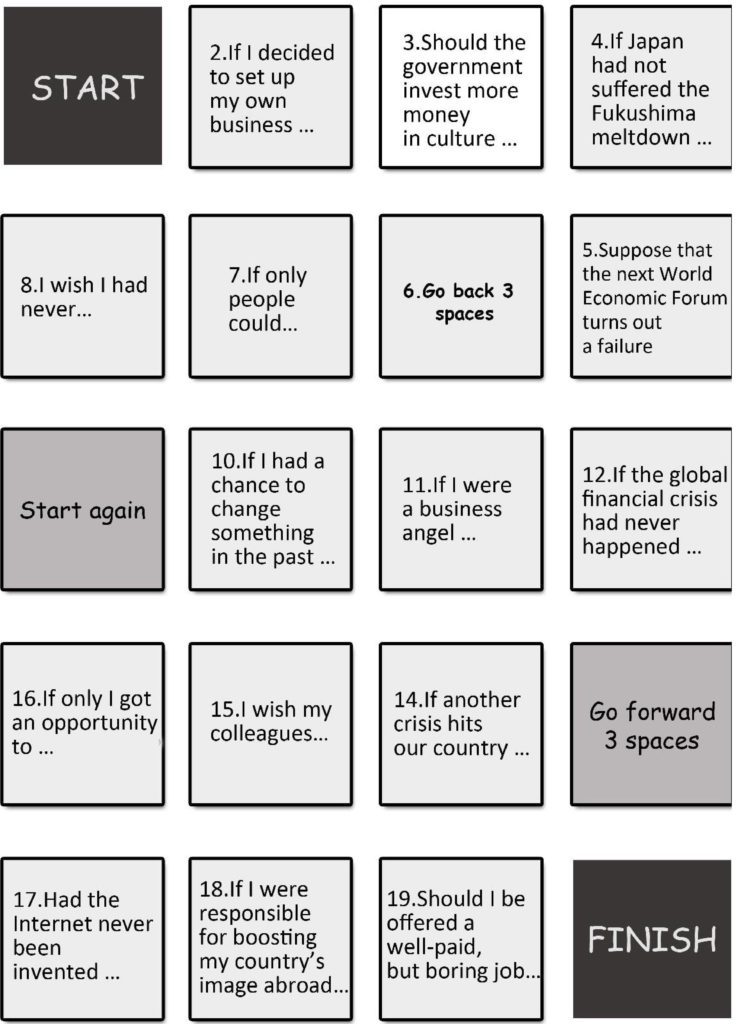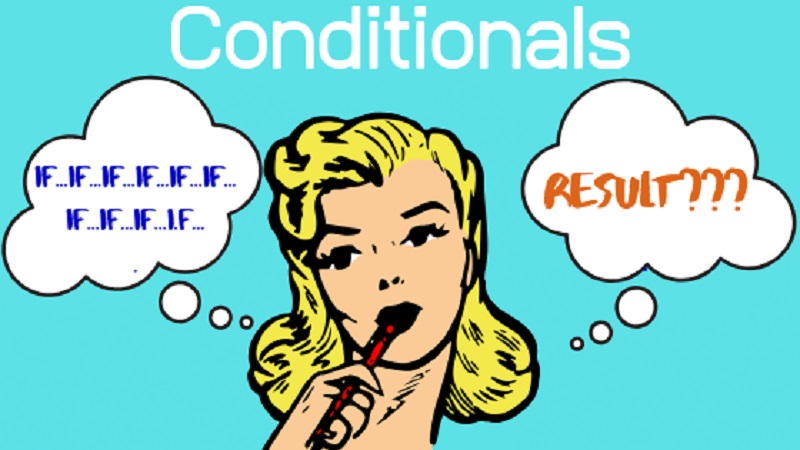Understanding English Conditionals:
Conditionals are statements that describe both hypothetical and real scenarios. They are often referred to as “if clauses” because they often begin the same way.
When used correctly, they can help you talk about your dreams, desires, aspirations, regrets and future possibilities. You just need to learn the basic grammar rules.
The four different conditionals:
- Hypothetical situations (unreal or imagined events)
- Things that are likely to happen in the future
- Things that are unlikely to happen in the future
- General truths or habits
- Impossible situations
The different types of conditionals and examples of how you can use them:

The Zero Conditional:
This conditional is used for:
- General truths
- General habits
Note that the order of clauses is not fixed in the conditional and can be moved.
Use this structure:
- If (or When) + Present Simple, Present Simple
- If (or When) + Past Simple, Past Simple
Examples:
- If it rains, we stay home.
- You get burned if you sit in the sun without sunscreen.
- We eat dinner when the pizza comes.
- When she washed the car, her father was surprised.
But, if you move “if” or “when” to the middle of the sentence, you must remove the comma. This rule applies to all four types.
- The Zero Conditional is the only conditional out of the four in which “when” can replace “if.”
- The Zero Conditional refers to general truths, while the First Conditional refers to specific situations.
The First Conditional
This conditional is used for:
- Possible things
- Likely things in the future
- Use this structure:
- If + Present Simple, Will (May/Might/Can/Could/Should) + Infinitive Verb
Examples:
- Jack will go to the beach if the rain stops.
- We can get to the cinema faster if we walk.
- If she enters the competition, she might meet her idol.
- If you eat the whole pizza, you will feel very full.
We mostly used “Will” in the First Conditional, but you can also use modal verbs, such as “May,” “Might,” “Can,” “Could,” or “Should.” The modal verbs can, however, change the meaning of the sentence.
The First Conditional usually refers to future events that are likely to happen, while the Second Conditional refers to events that are unlikely to happen (or currently not possible).
The Second Conditional
This conditional is used for:
- Impossible things in the present
- Unlikely things in the future
Use this structure:
If + Past Simple, Would (Might/Could) + Present or Continuous Infinitive Verb
Examples:
- The doctor would help you if you told him what was wrong.
- Sandra could get the job if she knew the right people.
- If I suddenly got rich, I would stop working.
- If people cared a bit more, the world would be a better place.
The Second and the Third Conditional both refer to impossible events.
The Second Conditional refers to impossibilities in the present time, while the Third Conditional refers to impossibilities in the past that cannot be changed.
The Third Conditional
This conditional is used for:
Things that did not happen in the past and their imaginary results
Use this structure:
If + Past Perfect, Would (Could/Might) + Have + Past Participle Verb
Examples:
- If we had met a few years earlier, I might have married you.
- The situation could have been better if the government had reacted earlier.
- If Benny had listened to the police officer, he wouldn’t have been arrested.
- If my siblings had bought a beach house with me, we could have had family holidays at the coast.
Interested in taking language classes?
Spanish School in Madrid
Spanish School in Barcelona
Spanish School in Toronto
Spanish School in London
Spanish School in Argentina
Spanish School in Mexico
Spanish School in Peru


